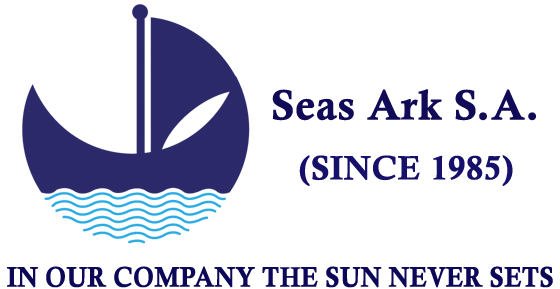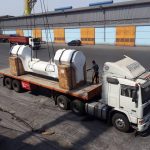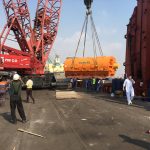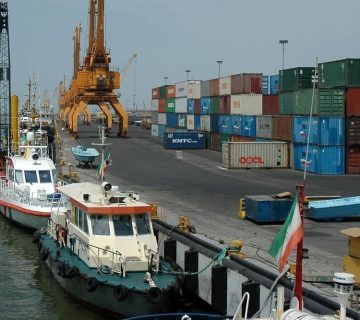TEHRAN- The value of Iran’s non-oil export to Pakistan increased by 62 percent during the first seven months of the current Iranian calendar year (March 21-October 22), as compared to the same period of time in the past year, the spokesman of the International Relations and Trade Development Committee of Iran’s House of Industry, Mining and Trade announced.
Ruhollah Latifi said that Iran exported non-oil commodities worth $1.14 billion to its neighbor Pakistan in the seven-month period of this year.
He also announced that Iran imported commodities valued at $352.64 million from Pakistan during the first seven months of this year, with 39 percent drop year on year.
The official has previously announced that Iran’s non-oil export to Pakistan increased by 18 percent in the previous Iranian calendar year (ended on March 20).
Pakistan was Iran’s fifth largest export market in the previous calendar year, importing non-oil products worth $1.488 billion from Iran, Latifi said in May.
He added that Iran imported non-oil goods worth $842 million from Pakistan last year, up 170 percent from the previous year.
The intertwining of economic, security, and transit relations between Iran and Pakistan has made the relations of the two countries beyond the neighborhood and turned them into strategic partners with common interests at the regional level.
Having more than 900 kilometers of joint border can lead to closer and more cooperation between the two countries in areas such as transit corridors and bilateral trade.
Iran and Pakistan signed a Memorandum of Understanding (MOU) in mid-January to facilitate bilateral trade between the two countries.
The MOU was signed by the former Head of Iran’s Trade Promotion Organization (TPO) Alireza Peyman-Pak and Head of the Trade Development Authority of Pakistan (TDAP) Muhammad Zubair Motiwala.
Based on the MOU, which was signed on the sidelines of Iran’s Exclusive Exhibition in Karachi, the parties pledged to exchange business information, support each other’s private sectors, and provide the conditions and context for the presence of their trade delegations in the other country.
Speaking at the signing ceremony, Peyman-Pak said that signing this MOU was indicative of the two sides’ determination for removing the obstacles in the way of bilateral trade and prepare the ground for the businesspersons of both sides to bolster cooperation.
He considered the holding of exclusive exhibitions, exchanging trade delegations, and investment in joint production units as positive steps for knowing the capacities and needs of the two countries and expressed hope that such events would continue.
Also, during a meeting between the previous Head of Tehran Chamber of Commerce, Industries, Mines, and Agriculture (TCCIMA) Masoud Khansari, and Chief Executive of Trade Development Authority of Pakistan (TDAP) Muhammad Zubair Motiwala in Tehran in mid-May, the two sides expressed the need for the expansion of relations between the private sectors of the two countries.
Speaking at the meeting, Motiwala announced the readiness of his organization for long-term and progressive interaction with TCCIMA in order to facilitate the commercial exchanges of the two sides’ economic enterprises.
He stressed the need for continuous exchange of trade delegations with the aim of introducing the economic and market cooperation capacities of the two countries and identifying the goods and services needed by the markets of both sides.
According to the official, the chambers of commerce in the two countries can provide the basis for the expansion of interaction between the private sectors of the two countries.
Motiwala also considered the revision and modification of the tariffs on commodities traded between the two countries as necessary to increase the level of economic cooperation, and in this regard, he reminded that Pakistan is taking serious measures.
Khansari for his part, welcomed the ideas presented by the Pakistani side and emphasized the need for amending the tariffs on goods exchanged between Iran and Pakistan.
“A complete list of commodities needed by the markets of the two countries has been prepared by the Tehran Chamber of Commerce which has been compiled by the data provided by reliable companies,” Khansari said.
As the latest step in line with broadening economic and trade ties between the two sides, Iranian Foreign Minister Hossein Amir Abdollahian and his Pakistani counterpart Bilawal Bhutto Zardari inked a five-year strategic plan document for trade cooperation between the two neighboring countries from 2023 to 2028, in Islamabad.
Amir Abdollahian and Bilawal discussed the latest bilateral political, economic, and defense issues, including the development of trade ties during the meeting.
“Under the government of Iran’s President Ebrahim Raisi, the volume of trade exchanges between the two countries has increased by more than 50 percent,” Amir Abdollahian said in the meeting, adding that Iranian and Pakistani officials want to see further expansion of ties in the future, given existing capacities.
Bilawal, for his part, called for the formation of a strategic committee to follow up on agreements on the expansion of cooperation.
Tehrantimes

Comments are disabled.




